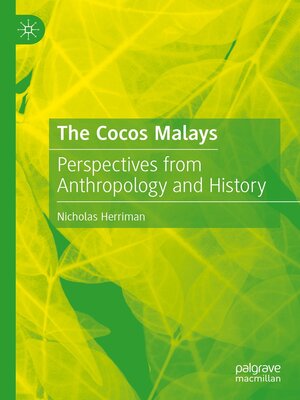The Cocos Malays
ebook ∣ Perspectives from Anthropology and History · Social Sciences
By Nicholas Herriman

Sign up to save your library
With an OverDrive account, you can save your favorite libraries for at-a-glance information about availability. Find out more about OverDrive accounts.
Find this title in Libby, the library reading app by OverDrive.



Search for a digital library with this title
Title found at these libraries:
| Library Name | Distance |
|---|---|
| Loading... |
Looking at the past from an anthropological perspective, this book deploys and analyses a variety of anthropological concepts to understand the history of Cocos Malay society. Around 400 Cocos Malays reside on their remote Indian Ocean atoll, the Cocos Islands. Possessing a unique culture and dialect, they could be considered Australia's oldest Muslim and oldest Malay group. Yet their society only developed over the past two centuries. In the early 1800s, a European gathered about one hundred slaves from around Southeast Asia. After settling on Cocos, a dynasty of rulers tried to distinguish themselves as European kings. Under them, the Southeast Asians in the group toiled in the export of coconuts. But despite this, these Southeast Asians influenced and intermarried with the rulers. As a result, a Eurasian society developed. The Cocos Malays were initially implicated in Southeast Asian and wider Indian Ocean trade and communication networks. Later, this connectivity intensified through technologies such as telegraph cable and the Internet. This book uses the history of the Cocos Malays to explore questions of broader interest to anthropologists, such as how concepts from the overlap of history and anthropology 'unlock' the history of societies; how we can usefully combine the 'indigenous' concepts like "kerajaan" with internationally accepted concepts like class; and what is obscured when we use the concepts from the anthropology-history crossover to understand the past.







